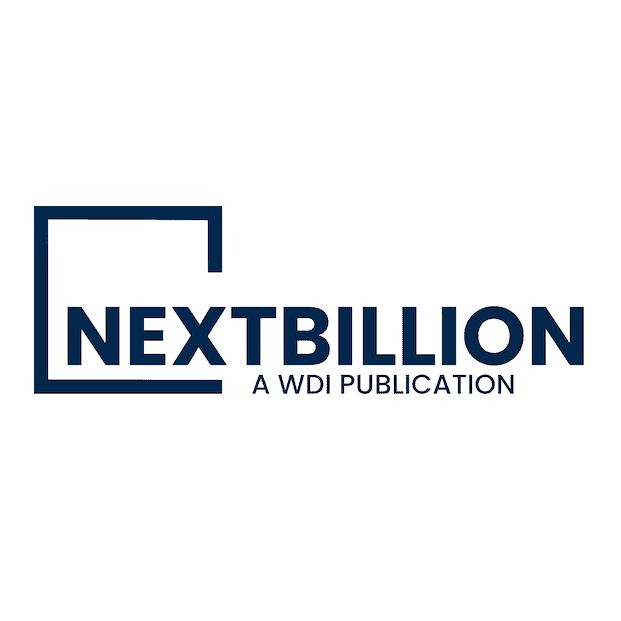-
Is Government the Key to Scaling up Graduation Programs? Results From an Impact Evaluation in Latin America
Graduation programs fight poverty by offering participants the tools and resources they need to create a viable livelihood. But while these programs have shown impressive results, they're costly to bring to scale. Tatiana Rincón and Adriana Insaurralde at Fundación Capital explore whether the graduation approach can be rolled out by governments without compromising its impact, based on evidence from a ground-breaking impact assessment.
- Categories
- Impact Assessment
-
Storytelling as a Strategy: What Entrepreneurs Can Gain from Crafting a Compelling Narrative
As Steven Spielberg once said, cinema’s power of persuasion is shown by getting “everybody to clap at the same time.” Likewise, successful entrepreneurs must also tell stories with persuasion and purpose, says Ami Dalal at FINCA Ventures. She explores how effective storytelling can help an enterprise build its brand and attract investors, customers and talent, and shares two essential approaches to help early-stage companies craft compelling narratives.
- Categories
- Energy, Investing, Social Enterprise, WASH
-
The Rise (and Rise) of the Gig Economy in Kenya – And How to Take It to the Next Level
The gig economy is growing fast in East Africa, fueled by a young population and burgeoning mobile and smartphone penetration. Countries like Kenya now have gig platforms offering everything from taxi rides to cleaners and handymen, and analysts say this is only the beginning. Gituku Ngene at Google.org Youth Impact Labs explores the gig economy's growing impact, the barriers it faces – and solutions that could unlock its full potential.
- Categories
- Social Enterprise, Technology
- Tags
- employment, gig economy, youth
-
5 Ways Nonprofits Can Learn (and Copy) from For-Profits to Scale Up
Tough problems in tough places – that’s business as usual for many global nonprofits. As they navigate the challenges of high regulatory risk and ever-changing donor interest, nonprofits typically grow by acquiring more projects – based on how well they delivered previous projects. But businesses mostly fund their growth by reinvesting profits, or by raising external equity or debt. While these two systems are very different, there’s much nonprofits can learn from for-profit businesses as they reach for scale, writes Dhananjay Vaidyanathan Rohini at Alstonia Impact.
- Categories
- Uncategorized
-
The Missing Piece of the Fintech Puzzle: How Local, Informal Networks Play a Crucial Role in Remittances
The spread of fintech is bringing millions of emerging markets customers – and their relations – into the realm of formal finance. But though they're powered by futuristic technologies, fintech initiatives are often built on complex community networks and informal methods of transacting that have existed for centuries. Researchers Daivi Rodima Taylor and Bill Maurer explore the implications of these roles, relationships and social intermediaries for financial service design.
- Categories
- Finance
-
Who Owns Poverty?: A Q&A with Fundación Paraguaya Founder and CEO Martin Burt
Why do so many anti-poverty efforts fail? And what should we do differently? In his new book, "Who Owns Poverty," Fundación Paraguaya founder and CEO Martin Burt explores those questions from the viewpoint of the real experts: poor families themselves. He presents some key insights from the book in this Q&A – and the book is available to NextBillion readers at a discount (or as a free e-book)!
- Categories
- Finance, Social Enterprise
-
Designing for Social Good, Not ‘Feel Good’
Designing products for multinational corporations and their affluent target markets is very different from designing products for low-income, rural consumers. Jordan Westerberg, industrial designer with social venture development firm Factor[e], has worked in both of these worlds. He discusses a recent project that redesigned a solar conduction dryer for Indian farmers, and cautions against being drawn to simplistic, feel-good products when designing for social impact.
- Categories
- Agriculture, Social Enterprise, Technology
-
Universities Must Teach Their Budding Scientists Entrepreneurship
As Africa continues to develop, there will be growing demand for experts who can address its social and economic needs. According to professors Karl Kunert and Christopher Cullis, the region's budding scientists can help meet that demand by acquiring business-oriented skills - but these skills aren’t usually part of their training. They explore the benefits of teaching students to turn scientific innovations into business opportunities, and the key role universities can play.
- Categories
- Education










